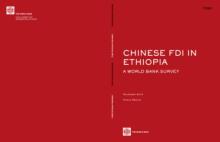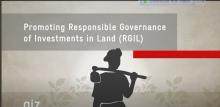/ library resources
Showing items 1 through 7 of 7.The purpose of this paper is to examine the existing real property valuation practice in case of expropriation in Ethiopia and to propose potential bases and approaches compatible to the Ethiopian real property system based on desk review research in which existing literature are the main source.
In Ethiopia, expropriation and compensation measures have become a great concern due to horizontal urban expansion and development induced projects. Especially in peri-urban areas, the livelihood of farmers is affected by expropriation without fair and comparable compensation.
A proclamation to provide for the expropriation of landholding for public purposes
The development plan of the Federal
Government of Ethiopia emphasized low-cost energy supply as
a prerequisite to the enhancement of industrial and economic
development for the period 1984-1993. Current power planning
While scholars long recognized the importance of land markets as a key driver of rural non-farm development and transformation in rural areas, evidence on the extent of their operation and the nature of participants remains limited.
Chinese Foreign Direct Investment (FDI) into Africa is on the rise and Ethiopia is at the forefront of this trend. On request of the Government, the World Bank surveyed 69 Chinese enterprises doing business in Ethiopia with a 95-question survey in May/June 2012.
A large share of the world's rural population depends on using land to feed themselves. Commercial agriculture and forestry investments are placing growing pressure on land as a resource.
Land Library Search
Through our robust search engine, you can search for any item of the over 73,000 highly curated resources in the Land Library.
If you would like to find an overview of what is possible, feel free to peruse the Search Guide.







